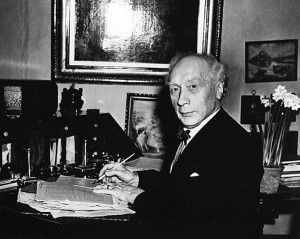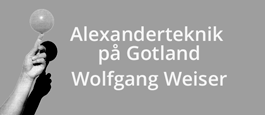The Alexander Technique is a movement awareness technique that teaches you how to bring more practical intelligence into what you are already doing. You learn to notice your activities and are given the experience of how your body can work better. You eliminate stereotype responses and archive better results with less energy. The Alexander Technique reduces pain and improves poise & performance.

F.M. Alexander
Alexander lessons are traditionally conducted on a one-to-one basis in which the student is guided through simple everyday actions, e.g.walking, getting up from a chair, writing. The key to postural realignment in the Alexander technique is that of initiating movement from the head in a forward and up motion concentrating on the process of the action rather than the end product. Applying the Alexander Technique creates a sense of physical and psychological relaxation by preventing habitual overreactions to everyday stimuli. Traditionally the Alexander Technique has been used by musicans and actors to relieve themselves from the tensions and postural problems related to their acts, but is now increasingly studied by a wide range of individuals. A recent study published by the British medical Journal 2008 showed that the Alexander technique was most effective in treating patients with chronic back pain. for learning more about the Alexandertechnique you can contact me and watch an introduction video. Many people have praised the effect of the Alexander Technique had upon themselves, most remarkable perhaps the testimonial given by the Nobelprize Laureate Niklaas Tinbergen, 1973, who commended upon the Alexander Technique during his Nobel Lecture by saying:
“We already notice, with growing amazement, very striking improvements in such diverse things as high blood pressure, breathing, depth of sleep, overall cheerfulness and mental alertness, resilience against outside pressures, and in such a refined skill as playing a musical instrument.” Nobelprize Laureate Niklaas Tinbergen, 1973
